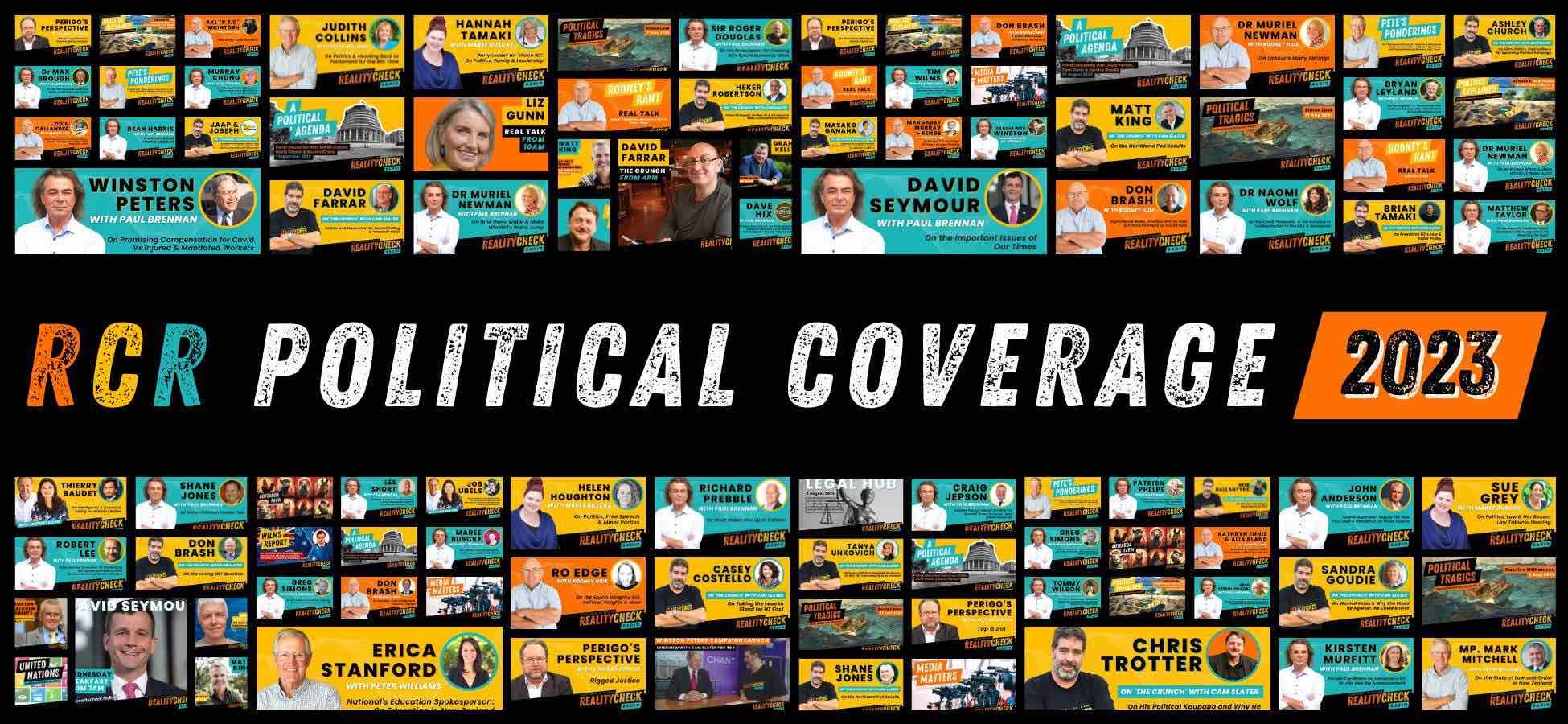
In the lead-up to the 2023 General Election, RCR has conducted over 200 political interviews.
RCR has conducted over 200 interviews relating to local, national and international politics, including over 150 concerning our 2023 general election.
In keeping with our philosophy, we have provided information and insight to you, our audience, so that you may weigh your options and make your own educated voting decisions this October.
Interviews with a range of parties: Our hosts have interviewed leaders and representatives from a wide range of political parties, both major and minor, including the following:
- ACT New Zealand
- DemocracyNZ
- Democratic Alliance
- Freedoms New Zealand
- Leighton Baker Party
- New Conservatives
- New Nation Party
- New Zealand First Party
- New Zealand Loyal
- NewZeal
- NZ Labour Party
- NZ Outdoors & Freedom Party
- The Green Party Aotearoa – New Zealand
- The Maori Party
- The New Zealand National Party
- Vision New Zealand
Check out our interviews here.
And a reminder to get your ticket to our Election Night Party here (or if you're a Foundation Club Member watch our for your complimentary invite in your inbox).
‘Wasted' or ‘Re-Allocated' Votes?
There's been a bit of a hullabaloo recently in respect of terms like “wasted votes” and “re-allocated votes”.
Now, something we often hear is: “There's no point voting for Party X because if they don't make the threshold your vote will be wasted.” Or: “Don't vote for Party Y because your vote will just end up going to another party.” But is it true that votes are “wasted” or “reallocated”?
- Votes for parties that do not make the threshold (gain 5% or win an electorate) create seats that cannot be used by those parties.
- These unused seats need to be allocated to the parties that did make the threshold.
- The allocation is made proportionally (and according to a formula – the Saint Lague formula).
- The Electoral Commission refer to the votes being “put in the bin”. However, before they are “put in the bin”, they do create seats that now need to be allocated.
- Allocation of unused seats to parties that did meet the threshold is often referred to as being “reallocated”. It’s not an actual “reallocation”. But it's an “effective reallocation”.
- More properly it's an “effective reallocation of seats”.
- At the end of the day, it's your decision how you vote. You have a choice. People may call a vote for a party that gets under the threshold a ‘wasted vote”.
- It’s not necessarily wasted if your goal is to send a message to both the party and the public that you support the principles and policies of that party – even if it doesn't get in.
- On the other hand, you may decide that you don’t want the major parties to get extra seats because of “wasted votes” – as happened in previous elections, like 2020.
The 2020 Election Example
In 2020, 7.9% of the vote went to parties that did not meet the threshold, translating to 10 seats.
This meant that 10 seats ended up being distributed amongst the parties that did make it in. Labour had received 60 seats which is 50% of the seats in Parliament.
After the reallocation Labour received an additional 5 seats (50% of the 10 seats mentioned earlier) which meant Labour ended up with 65 seats giving them a clear majority in Parliament at 54%. National received an additional 2 seats and the Greens, Act and Maori parties got an additional 1 seat each.*
The video below shows how the “wasted vote” phenomenon works in practice – based on what happened in the General Election in 2020.
* It's a bit more complicated than this due to the formula used but it's the simple way to explain it.
RCR Hosts On The So Called ‘Wasted Vote'
RCR Interviews
In the lead-up to the 2023 General Election, RCR has conducted over 200 interviews relating to local, national and international politics, including over 150 concerning our 2023 general election.
Our hosts have interviewed leaders and representatives from a wide range of political parties, both major and minor, as well as many respected political commentators.
In keeping with our philosophy, we have provided information and insight to you, our audience, so that you may weigh your options and make your own educated voting decisions this October.

